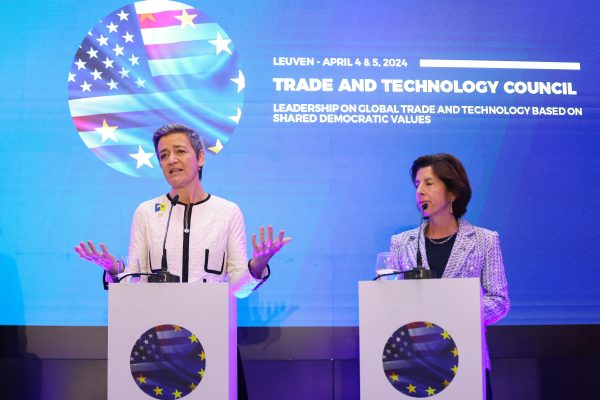China’s ambassador to France, Lu Shaye, set off a storm on April 21 when he told a television interviewer that the nations established when the Soviet Union was dissolved in 1991 — like Ukraine — were not sovereign states.
“The countries of the Soviet Union have no effective status in international law because there is no international agreement to recognize their status as sovereign countries,” he said.
Lu had been asked about the Russian occupation of Crimea and the war in Ukraine but his sweeping response — as a fluent French speaker there was no doubt that he meant what he said — was the most revealing statement by a Chinese diplomat in years.
His words drew protests from the Baltic states and condemnation from his long-suffering hosts at the Quai D’Orsay, whose politesse is somewhat tested by his style.
Predictably, however, there came soothing apologists for the People’s Republic who have, as the Chinese say, rice bowls that might be broken if relations are smashed. The ambassador — who holds one of the most senior posts in the Chinese foreign service — was not “mainstream,” we heard. He was speaking out of turn. He was a wild card, a “wolf warrior,” prone to attention-seeking quotes that played well at home.
Such experts should study the works of Deng Xiaoping, the paramount leader who followed Mao Zedong. “China does not practice personal diplomacy,” Deng said. He was correct. Its emissaries are drilled in conformity. The idea that a Chinese diplomat, even at Lu’s rank, could veer off-message or extemporize on grave policy matters is nonsense.
Lu’s statement was neither, in the strictest sense, undiplomatic, nor an aberration. It has, in fact, revealed the truth of Chinese realpolitik. He has said what they really think.
While researching a book on the history of Hong Kong, I found a treasure trove of documents in the archive of Margaret Thatcher, the British prime minister who negotiated the handover of the colony to China.
They revealed her shock upon discovering that China simply discarded treaties that did not suit it, while demanding adherence to treaty commitments by others.
After “Liberation” in 1949, Mao declared that treaties made by the Kuomintang were invalid, but he was careful thus to exclude pacts from imperial times — notably the 1689 treaty of Nerchinsk setting China’s frontier with Russia. His heirs were free to pick and choose what they adhered to.
It was the supposedly liberal reformer Zhao Ziyang, then premier, who told Thatcher in 1982 that the 19th-century treaties handing Hong Kong to Britain were “unequal” and had never been recognized by the Chinese people.
A secret memo recorded her reply: “If the Chinese government abrogated one agreement valid at international law, what assurance could there be that they would keep any other agreements?”
A lawyer, she insisted on the principle of pacta sunt servanda; namely, that agreements should be kept.
She argued that point in a brutal meeting with Deng himself, at which he threatened to seize Hong Kong by force of arms. She knew, however, that China was weak. It feared the Soviet Union, and it wanted to rejoin the world economy. Deng needed a deal.
She convinced him to settle through an agreement by which the 19th-century treaties were abrogated by an act of Parliament and a Sino-British Joint Declaration was made guaranteeing the future of Hong Kong. In 1997, the colony was handed back to China.
Today Beijing has set aside the commitments it made and taken Hong Kong under complete political control. Its diplomats sometimes say the Joint Declaration, though registered as a treaty at the United Nations, is null and void.
What relevance does all this have today? China recognized the sovereignty of all 15 Soviet successor states and has bilateral agreements with them, including Ukraine, of course, whose worthlessness in the eyes of China is now clear. For the Baltics, now members of the European Union (EU) and NATO, this may be just an irritation. For the Central Asian nations – perhaps even for Vladimir Putin’s Russia – it is existential.
Any policymaker negotiating with China — or dreaming it might be a reliable peace broker in Ukraine — needs to grasp the Marxist-Leninist thinking of its leaders. Power counts, scraps of paper don’t.
In that sense, Ambassador Lu has given the world a lesson in Chinese diplomacy that nobody can ignore.
Michael Sheridan is author of ‘The Gate to China: A new history of the People’s Republic and Hong Kong’ published by HarperCollins and Oxford University Press (USA). He was Far East Correspondent of The Sunday Times for 20 years.
Europe’s Edge is CEPA’s online journal covering critical topics on the foreign policy docket across Europe and North America. All opinions are those of the author and do not necessarily represent the position or views of the institutions they represent or the Center for European Policy Analysis.





